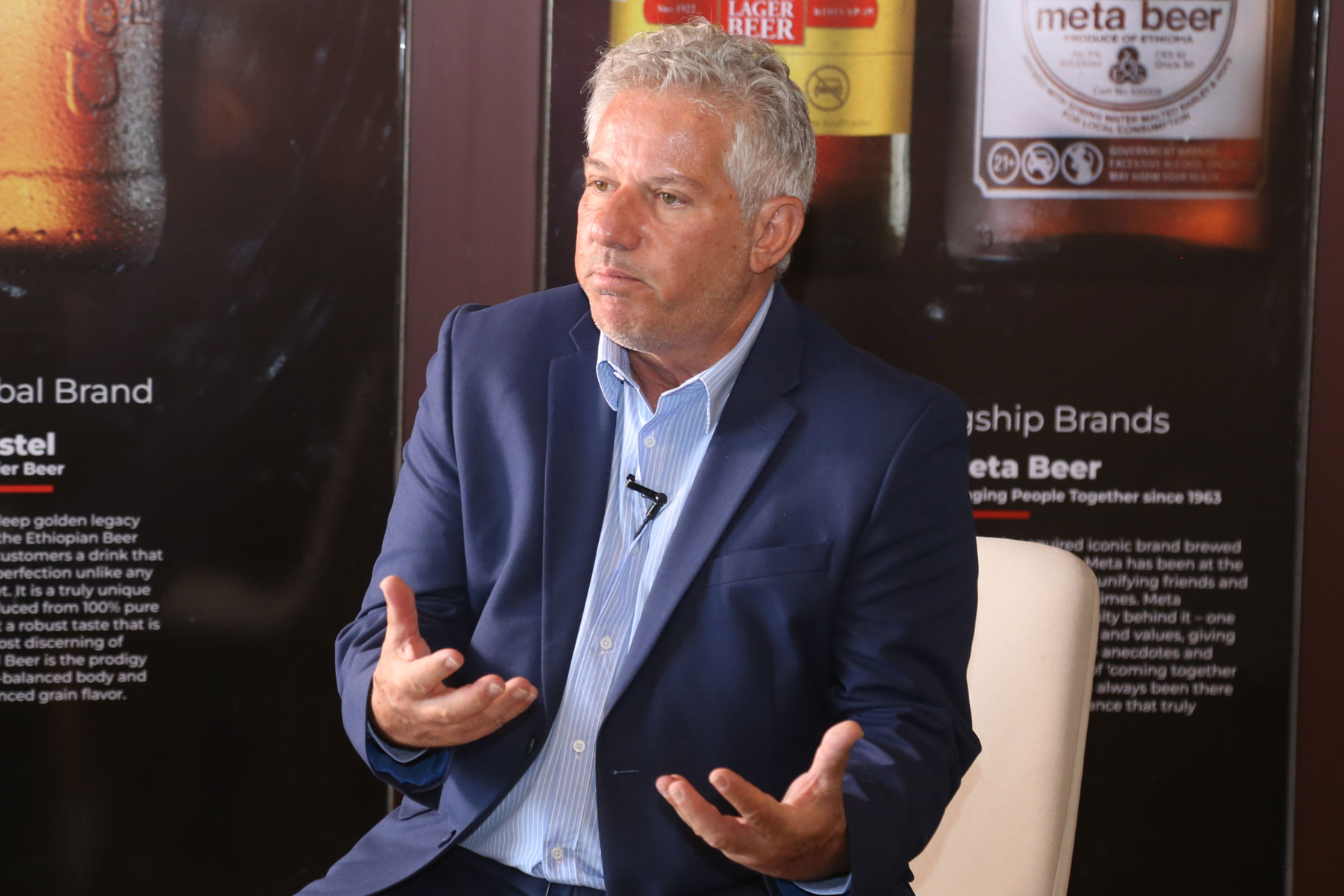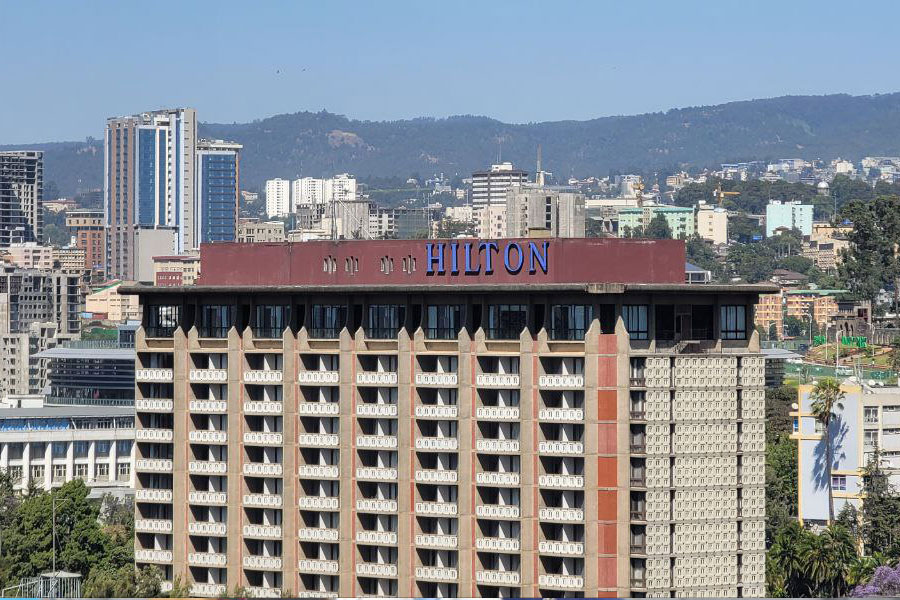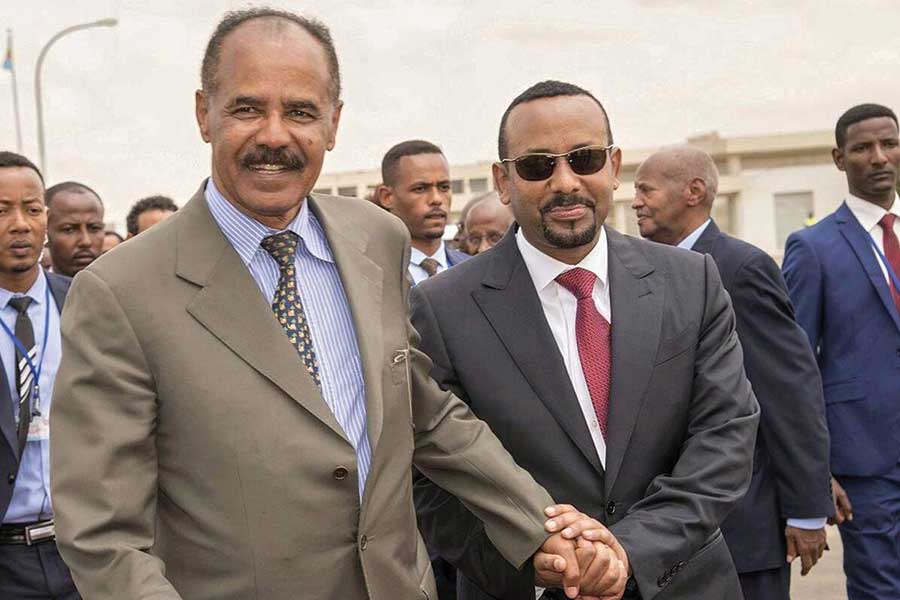
Exclusive Interviews | May 11,2024
Mar 23 , 2024
By Hintsa Andebrhan
Former President Donald Trump's legacy in the Horn of Africa, particularly his policies towards the Ethiopia-Eritrea conflict and the Grand Ethiopian Renaissance Dam (GERD) dispute, personified the blend of contradiction and assertiveness characteristic of his foreign policy position. His tenure, marked by a significant yet contentious attempt to influence the geopolitics of the Horn of Africa, showed a departure from what he perceived as the missteps of his predecessors, aiming instead for a proactive, albeit controversial, engagement in regional affairs.
The deployment of Donald Yamamoto, a seasoned diplomat with extensive experience in East and Central African affairs, to facilitate the resolution of the 'no-peace-no war' engagement between Ethiopia and Eritrea was evidence of Trump's White House intent to encourage a peaceful resolution of disputes in the region. Yamamoto's assignment could be taken as a sincere commitment to resolving the conflict, signalling a moment when Trump's foreign policy seemed poised to leave a positive mark in the Horn of Africa.
However, his diplomatic efforts in the region also encompassed a controversial position on the GERD, a monumental hydroelectric project by Ethiopia that has been a source of tension among Nile Basin countries, particularly Egypt. Trump's apparent support for Egypt in the dispute, which included a brash suggestion that Egypt might "blow up" the dam, contradicted his peacemaking efforts between Ethiopia and Eritrea. It alienated Ethiopia and seemed to undermine the cooperative spirit of the Nile Basin Initiative, a regional partnership promoting sustainable water sharing and management among the basin countries.
Critics argue that while Trump's motions on the GERD were contentious, the Ethiopian government's diplomatic missteps also exacerbated the situation. The failure to effectively engage in the Nile Basin Initiative's cooperative framework may have contributed to escalating tensions over the dam, suggesting a shared responsibility for the diplomatic impasse.
Beyond the Horn of Africa, Trump's influence on global politics was pronounced, notably in his approach to nuclear diplomacy. His historic meeting with North Korean leader Kim Jong Un to denuclearise was a bold departure from traditional U.S. foreign policy. Despite some scepticism, this initiative represented a significant effort to address nuclear threats. In contrast to President Obama's Nobel award for his vision of a world free from nuclear weapons, Trump's disappointment at not receiving the Prize for these efforts showed the controversial nature of his legacy in international diplomacy.
As Trump postures himself for a return to the political arena as the Republican candidate in the upcoming presidential elections in November this year, his past and proposed policies continue to provoke debate. His pledge to reform the CIA and FBI has sparked concern within the U.S. intelligence community, reflecting his enduring antagonism toward what he perceives as a deep-seated bias against him, particularly about the "Russiagate" investigation.
Trump's position on NATO and the ongoing war in Ukraine signals a potential shift in U.S. foreign policy should he return to office. High-ranking officials, including former National Security Adviser John Bolton, have expressed concerns about Trump's intentions toward NATO, suggesting that his election could threaten the alliance's future. Trump's claim that he could resolve the Ukraine conflict "in one day" sharply contrasts with the Biden administration's strategy, which views support for Ukraine as a moral imperative and an economic benefit, as Secretary of State Antonio Blinken believes in the positive impact of defence investments on the U.S. economy.
As Trump's potential return to the presidency looms, the debate over his foreign policy legacy and future intentions intensifies. His past actions in the Horn of Africa and his positions on vital international issues show his controversial approach to diplomacy. Whether his "blood path" slogan will resonate with voters remains to be seen. But, for better or worse, Trump's impact on global politics is indisputable.
PUBLISHED ON
Mar 23,2024 [ VOL
24 , NO
1247]


Exclusive Interviews | May 11,2024

Fortune News | Apr 03,2023

Radar | Jun 11,2022

Sunday with Eden | Dec 07,2019

Radar | Apr 16,2022

Editorial | Jan 30,2021

Fortune News | Oct 12,2019

Viewpoints | Nov 09,2019

My Opinion | Feb 24,2024

Fortune News | Mar 26,2022

My Opinion | 131507 Views | Aug 14,2021

My Opinion | 127863 Views | Aug 21,2021

My Opinion | 125841 Views | Sep 10,2021

My Opinion | 123471 Views | Aug 07,2021

Dec 22 , 2024 . By TIZITA SHEWAFERAW
Charged with transforming colossal state-owned enterprises into modern and competitiv...

Aug 18 , 2024 . By AKSAH ITALO
Although predictable Yonas Zerihun's job in the ride-hailing service is not immune to...

Jul 28 , 2024 . By TIZITA SHEWAFERAW
Unhabitual, perhaps too many, Samuel Gebreyohannes, 38, used to occasionally enjoy a couple of beers at breakfast. However, he recently swit...

Jul 13 , 2024 . By AKSAH ITALO
Investors who rely on tractors, trucks, and field vehicles for commuting, transporting commodities, and f...

Jun 28 , 2025
Meseret Damtie, the assertive auditor general, has never been shy about naming names...

Jun 21 , 2025
A well-worn adage says, “Budget is not destiny, but it is direction.” Examining t...

Jun 14 , 2025
Yet again, the Horn of Africa is bracing for trouble. A region already frayed by wars...

Jun 7 , 2025
Few promises shine brighter in Addis Abeba than the pledge of a roof for every family...

Jun 29 , 2025
Addis Abeba's first rains have coincided with a sweeping rise in private school tuition, prompting the city's education...

Jun 29 , 2025 . By BEZAWIT HULUAGER
Central Bank Governor Mamo Mihretu claimed a bold reconfiguration of monetary policy...

Jun 29 , 2025 . By BEZAWIT HULUAGER
The federal government is betting on a sweeping overhaul of the driver licensing regi...

Jun 29 , 2025 . By NAHOM AYELE
Gadaa Bank has listed 1.2 million shares on the Ethiopian Securities Exchange (ESX),...